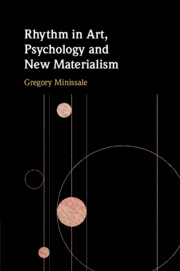In this article Stephen Wilmer applies Deleuze and Guattari's concept of nomadology to the Fluxus art movement that spread across the world, breaking down barriers between art and life, privileging concrete and conceptual art, and staging unusual events. He traces Rosi Braidotti's development of Deleuze and Guattari's concept into her notion of the nomadic subject in which she favours factors such as geographic movement, transnational identities, common space (in accord with the Deleuzian differentiation between the divisible earth or private property, and nomadic space which belongs to everyone), polylingualism, desubjectivation, becoming minoritarian, and thinking and acting differently. With this as a philosophical and political context, the author investigates some of the artistic practices of specific Fluxus practitioners, especially the shamanistic performances and fat and felt installations of Joseph Beuys that supposedly owed their inspiration to his experience with nomadic Tatars. Stephen Wilmer is Professor Emeritus of Drama at Trinity College Dublin. He co-edited (with Audronė Žukauskaitė) Resisting Biopolitics: Philosophical, Political, and Performative Strategies (Routledge, 2016) and Deleuze and Beckett (Palgrave Macmillan, 2015). He edited ‘Theatre and the Nomadic Subject’ for Nordic Theatre Studies (2015), and co-edited (with Azadeh Sharifi) ‘Theatre and Statelessness in Europe’ for Critical Stages (2016).


